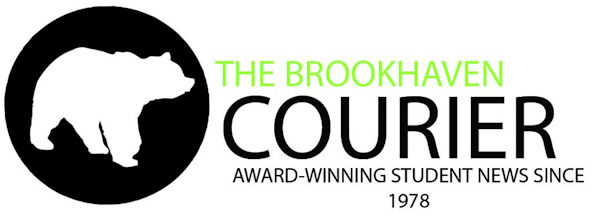By Kate Rhoads
Staff Writer

As K234 neared maximum capacity, featured guest speaker Alan C. Lowe said with a chuckle that in lieu of celebrating with a Constitution song, he would offer observations on a few presidents in the context of the three branches of government set up under the U.S. Constitution.
Lowe is director of the George W. Bush Presidential Library and Museum and a former history professor at Brookhaven College. Students gathered for the first Institute for Political Studies event of the fall semester Sept. 17, in celebration of Constitution Day.
Beginning with the executive branch, Lowe explained that the founders wrote Article II of the Constitution – the article that set up the office of the presidency – with George Washington in mind. Lowe said Washington is often referred to as the “indispensible man,” and he agrees with that description. “Without him, I don’t think we would stand here today as citizens of the United States,” Lowe said.
Lowe said Washington helped define the role of commander-in-chief in a republic and showed respect for congressional authority even when he disagreed with them.
Congress knew a strong commander-in-chief was needed, Lowe said, and this is the foundation upon which they drew up Article II, Section II of the Constitution, which addresses presidential powers.
Other presidents have defined the role of commander-in-chief in different ways. Thomas Jefferson, he said, helped cement the presidential powers and create a stronger central government through the Louisiana Purchase and the Barbary Wars.
Moving onto the legislative branch, Lowe said John Quincy Adams served in the House of Representatives with great distinction after he was president.
After accomplishing almost nothing during his four years as president, losing the next election and subsequently learning of his son’s suicide, Adams had “one of the most amazing second acts in presidential history,” Lowe said.
Lowe said Adams served nine distinguished terms in the House of Representatives, during which time he helped create the Smithsonian Institution and fought ardently against slavery.
Last, Lowe addressed the judicial branch. There are many instances of the executive and judicial branches relating to each other throughout history. “There’s kind of a dance between them,” Lowe said.
Lowe said he wanted to focus on William H. Taft, who served nine years as Chief Justice of the Supreme Court after his presidency. “He was a real legal whiz.”
Lowe said Taft worked hard to streamline court procedures, lobbying Congress to create a law that allowed the severely backlogged court to select which cases they would hear. In addition, Taft lobbied Congress to establish the Conference of Senior Circuit Judges, which Lowe said unified the judiciary and promoted national reforms.
Lowe concluded by encouraging students to read presidential biographies. “They can teach you a lot about your nation, about how people make decisions, how they confront challenges,” Lowe said. Stan Cantrelle, government tutor, said he liked the presentation.
He said our Constitution and government would look very different today had it not been for the impact these men made. “That’s going to affect me down the road, especially in regards to something like our Constitution.”
Daniel Johnson, a student who attended the presentation, said he thinks the average student only cares about the right to freedom of speech provided in the Constitution. “I don’t think that’s good or bad. I just think it is what it is,” he said.
Ahad Hayaud-Din, professor of political science/ government and director of IPS, said the demographic of students who attend community college are uninformed and generally apathetic about politics.
He and the political science faculty have tried to keep the program growing on limited resources, he said, but haven’t sacrificed quality along the way. “We’re bringing in all these people that have very high credentials that are taking a huge discount for the fee that we offer to give us top-notch information,” he said.
Hayaud-Din said he likes to finish the school year with a grand slam, so the last IPS event of the spring 2015 semester will feature Idean Salehyan, professor of political science at the University of North Texas, who wrote a book on transnational insurgents, “which is a fancy way of saying ISIS.”
Hayaud-Din said he and the political science faculty work to connect IPS events with other things happening on campus.
He said their next event is going to be about climate change, a nod to the current Open Book Project at Brookhaven. “That’s why I love political science,” Hayaud-Din said, “because it’s a little bit of everything.” According to the Brookhaven website, the next IPS event is scheduled to be at noon on scheduled Oct. 29 in to be at noon Room K234.






